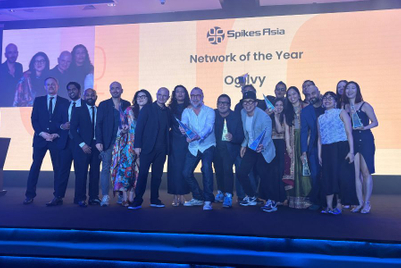
In the second installment of an exclusive three-part series (see part one here) for PRWeek, Weber Shandwick China President Lydia Lee explores how innovative new connections have been instrumental to helping businesses and individuals stay afloat through China's navigation of the COVID-19 crisis.
What if businesses could share employees?
This may not strike you as a particularly new or novel concept. After all, throughout the working world, many of us maintain multiple jobs across any given week. But, I'm actually suggesting a slightly different approach. What if, when one business was struggling, another business offered to support its people until things got better?
This is what is happening in China. It's actually been happening for a while now.
The COVID-19 outbreak has obviously devastated (and will continue to devastate) many different sectors and industries. In China, the restaurant sector was one of the hardest hit. With quarantines and lockdowns, there simply was no way for many eateries to remain open, and this left many restaurant workers unemployed for the foreseeable future.
However, where some sectors have struggled to maintain their businesses, others are currently negotiating an unprecedented explosion in demand. As in many other markets, China's quarantined population have turned to online grocery delivery platforms and those platforms have been overwhelmed in trying to meet the needs of a massive influx of new customers.
Sign up for our FREE weekly PRWeek Asia bulletin. Register here. |
But, a surprising connection has helped take the pressure off both China's unemployed servers and overburdened online grocery platforms: China's biggest retailer offered immediate employment to waiters, servers, and restaurant administrators displaced by COVID-19 closures. For the duration of the crisis, these workers will help prepare online grocery orders and manage the customer influx.
In our previous instalment, we discussed how staying connected will be an essential strategy in overcoming the COVID-19 pandemic. Previously, we used the example of cross-collaboration between China's government and tech sectors to deliver vital solutions for combatting the spread of the virus.
Today, we see how fostering innovative new connections can help markets, brands and individuals withstand the profound economic fallout of COVID-19. We've just seen a prime example. Through leveraging an unexplored link between two different (but sympathetic) sectors, one brand helped secure employment for displaced workers and ensured that their business could meet demands.
It's one of many ways in which brands are fostering new connections under COVID-19. By leveraging China's sophisticated ecommerce infrastructure, social networks and delivery systems, many brands have also managed to pinpoint new sources of revenue, new approaches to business, and new solutions to consumer needs.
One of the key brands currently providing fresh groceries, for example, was predominantly known as an ecommerce platform prior to the outbreak. A nightclub, meanwhile, leveraged China's sophisticated social networks to hold a live-streamed, remote club night where patrons could attend and connect digitally and via social media.
During COVID-19, brands will need to think creatively and provide new solutions to ensure continuity and survival for their businesses and for their people. By fostering new connections, leaders can develop new, innovative ideas and identify different audiences and talent bases to build resilience for their businesses and sectors.
If we only think about ourselves and what has been, each crisis will bring us closer to ruin. By reaching out to our colleagues and embracing different types of connections, we may not only survive a crisis like COVID-19, but it may also allow us to thrive in the future.
In our next instalment (for publish next week), we'll be discussing the vital importance of maintaining social cohesion through non-traditional connections. After all, we're not just fighting an illness; we're fighting division, isolation, and fear.
Lydia Lee is China president at Weber Shandwick.




.jpg&h=334&w=500&q=100&v=20250320&c=1)

+(1).jpg&h=334&w=500&q=100&v=20250320&c=1)
.jpg&h=334&w=500&q=100&v=20250320&c=1)

.jpg&h=334&w=500&q=100&v=20250320&c=1)

.jpeg&h=334&w=500&q=100&v=20250320&c=1)
.jpg&h=334&w=500&q=100&v=20250320&c=1)







.jpg&h=268&w=401&q=100&v=20250320&c=1)
